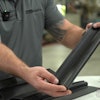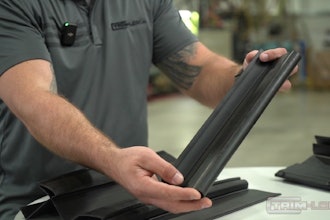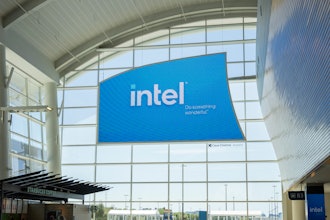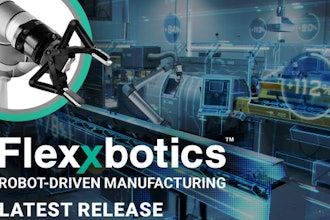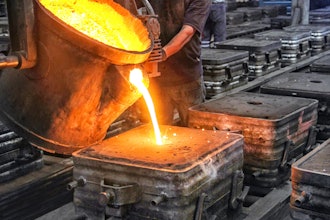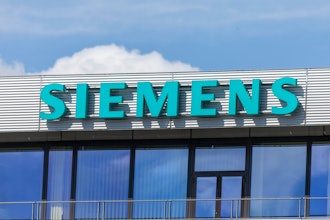
PC-based computing has become required to support the complex, data-driven manufacturing systems necessary to stay competitive. Whether running simulations on real-time data to predict maintenance needs, AI-based quality control systems, complex automation, or real-time data analysis and visualization to drive operator decision-making, critical functions requiring computing power beyond what standard PLCs are capable of are multiplying each year.
Industrial computing systems are quickly becoming the backbone of contemporary manufacturing operations, driving efficiency, precision and data-driven decision-making. When they malfunction or fail, the consequences can be dire.
Some manufacturers are using mass-produced commercial PC systems and external GPU processing to reduce the costs of adding the CPU and RAM capacity needed to fuel this critical functionality. Generic commercial PC systems offer lower prices but can result in shorter hardware lifetimes, less resilience in harsh environments, and lower levels of intrinsic computing power.
More Than the Geek Squad Can Handle
For any manufacturer, production downtime is always a significant concern. Many manufacturers relied on just-in-time production and seamless operations for decades to shave costs and increase profits. When logistics chains failed in 2020, that strategy left some manufacturers massively damaged by halted production, lack of raw materials or critical parts, and long-term stoppages.
Like supply chain difficulties, when industrial PC systems fail in a modern manufacturing environment, production lines often come to a standstill, causing increased costs and delays in order fulfillment, leading to financial losses and damaging customer relationships. The cost of repairing or replacing these systems can be substantial in total downtime and direct cost, impacting the bottom line.
Quality control and consistency are vital in modern manufacturing, and industrial PCs play a central role in ensuring product quality. Moreover, the inability to monitor and diagnose manufacturing processes in real time can lead to inefficiencies and missed opportunities for optimization. Modern manufacturing thrives on data analysis and predictive maintenance, which are heavily reliant on the proper functioning of industrial PC systems.
Cybersecurity is another critical aspect. With industrial PC systems being increasingly connected to the Internet and integrated into the Internet of Things (IoT), they become vulnerable to cyberattacks. A breach or hack could compromise sensitive data and intellectual property or even result in sabotage of manufacturing processes.
The risk of failure of industrial PC systems in manufacturing is multifaceted, including production disruptions, quality control issues, cybersecurity vulnerabilities and missed opportunities for process improvement. Manufacturers must invest in robust maintenance and cybersecurity measures to mitigate these risks and ensure the continued reliability of these critical systems.
Purpose-built Industrial PC (IPC) systems and mass-produced commercial PCs differ significantly in their design and advantages within a manufacturing setting. IPCs provide long-term availability, crucial for consistency and legacy system support, while commercial PCs often undergo rapid hardware and software changes, making long-term compatibility a challenge.
Bespoke IPC solutions are designed with industrial cybersecurity requirements in mind. IPCs are also tailored for industrial environments, offering rugged construction, enhanced reliability and extended temperature tolerance, ensuring they can withstand harsh conditions. In contrast, commercial PCs lack these robust features, making them vulnerable to hacking, damage or failure in manufacturing's demanding settings. In manufacturing, IPCs excel in reliability, durability and adaptability, ensuring uninterrupted operations, while commercial PCs face limitations and extended periods of downtime due to their consumer-oriented design.
Made-to-order IPC systems undergo rigorous testing of each component upon assembly to ensure there are no defective or sub-spec parts that could cause intermittent failures or experience a shorter-than-expected lifespan. This QA process may include x-ray inspection, hardware limit tests and long-duration software stress tests. IPC systems may also integrate high-level processing power typically required for specific AI and simulation applications. This ensures manufacturers aren’t restricted to commercial supply chains and left competing with consumers for the expansion card GPU processing needed to run high-demand applications.
Long-term strategy is also a serious consideration in industrial settings. Staying competitive requires the latest technology, and that technology necessitates advanced processing power. Reducing short-term costs using mass-produced computing solutions can lead to long-term risks. Whether planning for the ability to scale the operation or ensuring that there are replacement parts and adequate vendor support channels, IPC solutions for industrial applications have deployments measured with decades in mind when implemented, not months or years.
Planning for long-term IPC viability ensures critical functions don’t succumb to hardware failure or software issues that are no longer supported while allowing flexibility and scalability when needed. Cutting corners now to reduce some upfront costs can be devastating if there are unforeseen circumstances in the future.

